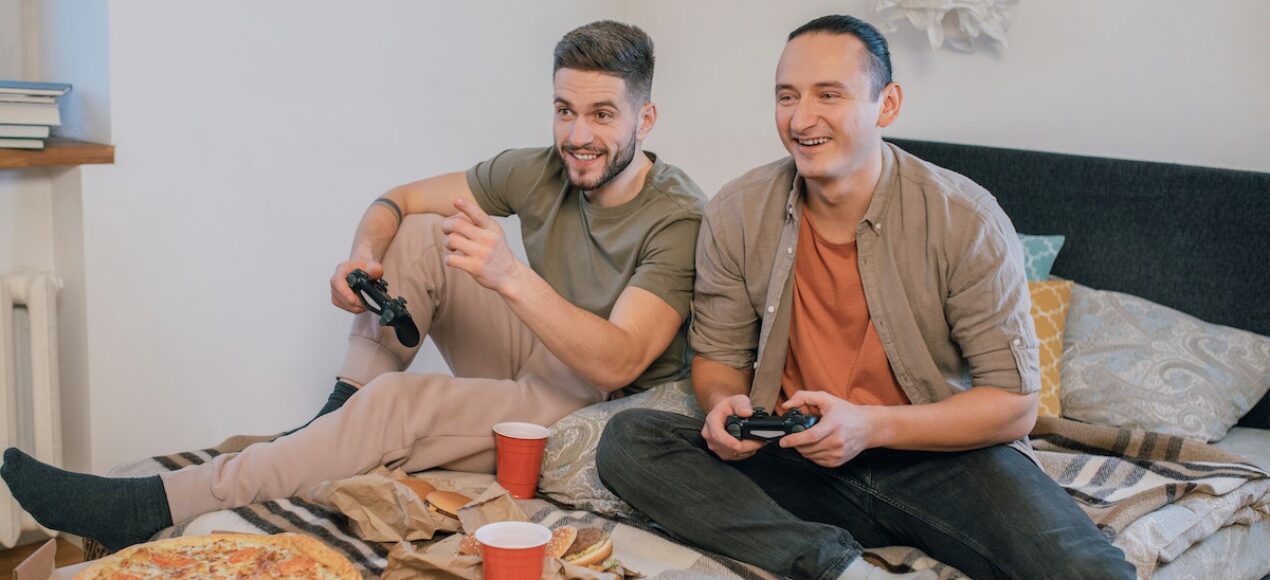Our dedication lies not just in treating symptoms but in addressing the root causes, offering a holistic approach that integrates the best of therapeutic practices with the warmth of community support.
Video Games and Young Adult Depression (Demo)

Aug 08, 2022
Over three billion people across the globe play video games. People play these games for various reasons, such as to relieve stress, have fun and enjoy a sense of mastery. Even though video games in themselves are not harmful, they can become a problem for your mental, emotional, social and physical health.
Research from the National Library of Medicine tells us that video game addiction positively correlates with depression, loneliness and social anxiety, especially in the young adult population. Researchers also stated that young adults addicted to video games show increased depression and anxiety and feel more socially isolated.
Let’s explore how video games affect your mental health and the best recovery plan for a technology addiction in Princeton NJ.
How Video Gaming Affects Your Mental Health
Video games have been around for decades. But only in the past 15 years or so have people started to pay attention to the effects that video gaming can have on mental health. Excessive gaming is connected to a number of mental health problems such as:
- Depression. This study found that 89 percent of people with a gaming addiction were also diagnosed with depression. Spending too much time playing video games can make you depressed or contribute to worsening depression.
- Social anxiety. The more you play video games, the more you lose contact with friends. You may have originally turned to video games because you struggle with social anxiety, but a lack of social interactions can make you more anxious.
- Anxiety. If you’re turning to video games to escape anxiety, you’re not dealing with your problems head on. Spending too much time playing games can also cause you to neglect your responsibilities, causing more pressure.
- Lack of motivation. When you play video games too much, you don’t have the motivation to engage in other, more important hobbies and activities.
- Poor emotional regulation. If you are diagnosed with a technology addiction in NJ, you’re more likely to be depressed, anxious or aggressive.
Best Video Gaming Treatment in New Jersey
If you or someone you love is using video games to escape reality, numb their emotions and avoid social interactions, it’s probably time for professional help. Video games can cause changes in the brain just as drugs and alcohol do, and they can put you at risk for worsening mental health problems like anxiety or depression.
Here is what a recovery plan for a video game addiction should look like.
Counseling
One-on-one counseling and family counseling are both effective in helping a gaming addict. Trained counselors will help you understand how gaming is affecting your life, and how you might be using it to escape painful emotions or mental health problems.
Cognitive behavioral therapy in New Jersey is especially beneficial because it allows you to modify your thoughts, feelings and behaviors for improved mental health.
12-Step Programs
There are a number of recovery groups that you can look into, such as Online Gamers Anonymous. These recovery groups connect you to others who are experiencing similar problems. You can share your experiences and learn from others’ experiences.
You may also benefit from other support groups in your area that focus on specific issues, such as Alcoholics Anonymous or Narcotics Anonymous.
Medications
If you are struggling with an underlying mental health problem, you can likely benefit from medication. For example, antidepressants treat clinical depression and anti-anxiety meds treat anxiety disorders.
Treatment Centers
Yes, there are treatment centers that specifically address video game addictions. CTRLCare Behavioral Health offers video gaming therapy in New Jersey. We provide a safe space where people can explore their motivations for excessive gaming.
Oftentimes, video gaming addictions are the result of untreated mental health problems like past trauma, depression or anxiety. CTRLCare Behavioral Health gives you all the tools you need to address your video game addiction and mental health problems.
To learn more about gaming addiction treatment in Princeton NJ, contact our mental health treatment center today.

APPOINTMENT
Get Your Online Consultation
Copyright 2025 CTRL Care | All Rights Reserved
